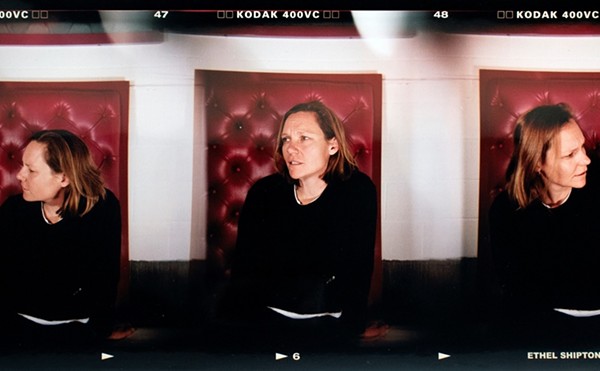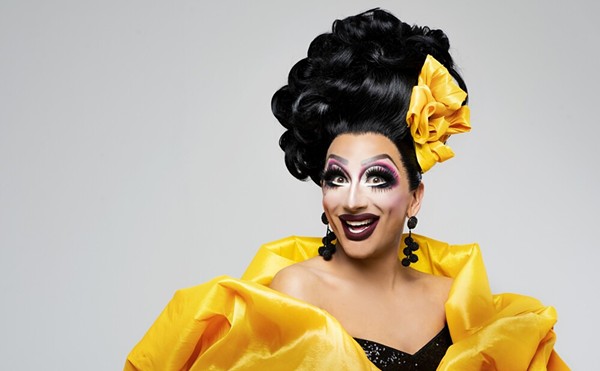Although writer Thomas McNeely lives in Boston, he's actually from Houston, the setting for his novel, Ghost Horse. Lisa Peet, in Library Journal, says: "The writing is sensitive, beautiful, and ominous throughout ... as if Cormac McCarthy and Denis Johnson teamed up to write a 1970s Texas YA novel that went off the rails somewhere — in a very, very good way." McNeely's novel and mine, Body and Bread, have similarities: Texas in the 1970s, a child's perspective, the subject of race, mythological imagery and a person coping with loss. As the founder of Gemini Ink and writer in residence at Our Lady of the Lake University, I was curious about his craft choices, so our conversation begins with this interview and will culminate with a joint reading Saturday at the Twig Book Shop.
Both my novel, Body and Bread, and yours, Ghost Horse, depict their central character's reaction to loss — in the case of Body and Bread, Sarah Pelton's loss of her brother, Sam, to suicide; in Ghost Horse, 11-year-old Buddy Turner faces a series of Hobson's choices between his mother and father, old and new friends. How did you see these experiences of loss shaping your character and the voice that narrated the book?
In Ghost Horse, my hero, Buddy Turner, is desperately trying to weave together a narrative as his family keeps unraveling, and to understand the social forces at work around him, especially about race. One reviewer said that Buddy doesn't have a coherent self from which to narrate. That was exactly the place from which I wanted to write. Frankly, it was very difficult. I had to develop a kind of metaphorical language through which Buddy could express to himself what is happening, because he could not do so abstractly.
Ghost Horse reminds me of the Jane Smiley novella, Good Will, which seems to be a cautionary tale about what happens when you don't pay attention to the effects your behavior has on your children. Would you say your story could be described that way?
I think that makes a lot of sense. I wanted to examine what was being taught to kids at that time. I've shown people who've grown up in the South the scene where Buddy's grandmother gives a little speech about how if you throw away your white privilege, essentially you become black. And they say, "Oh, my God, I can't tell you how many times I heard that." Fortunately, I think to some contemporary readers, it is very foreign. But when I was growing up, that was the air I breathed. In the academy, there are all sorts of fancy theories about the performance of race, but my grandmother, from Victoria, Texas, understood that race is a performance.
Your goal in Ghost Horse is to represent the pathology of someone growing up in the South; you also mentioned race relations. How do you put those two ideas together in the character of Buddy?
Who you were as a white person was inextricably bound up in how your family perceived other races. There wasn't any "white" without "black" or "Latino" or all of the others that were created within white culture to sustain that white middle-class identity. In that sense, I don't think white identity is possible without racism. And it is mutually crippling for all of the races. I see it not only as a betrayal of the other, but a betrayal of the self.
During your writing of Ghost Horse, your father committed suicide. How did this affect the writing of your book?
It very nearly caused me not to finish it. But on the other hand, I think it made the book possible. I had to ask myself whom I was writing the book to — and at the beginning, I think that I was writing it to my father. After he died, I wasn't writing it to him. I was writing it to the kids out there who are still in Buddy's shoes.
In both novels, the main characters struggle to become human, or maintain their humanity. Do you think that Buddy Turner survives the trials of the novel with his humanity, his sense of self, intact?
The short answer is no. And I think that's why some people have had difficulty with the book. Though there is a glimmer of hope in the end.
I think that's why it seems like a cautionary tale.
I didn't know any other way to say what I wanted to say about what was going on inside that family, and the effects of larger social forces on people's characters at that time. I didn't know any other way to show how destructive to a sense of empathy and one's own sense of self that culture could be.
One last question: What is your advice to aspiring fiction writers?
I've come to recognize that people write for a vast number of different reasons. My advice is to figure out why you're writing. I think that if one articulates clearly one's purpose in writing, then the process is clarified.
Thomas McNeely with Nan Cuba
Free, 3-5pm Sat, Feb 21, The Twig Book Shop, 306 Pearl Pkwy., Ste. 106, 826-6411, thetwig.com
















